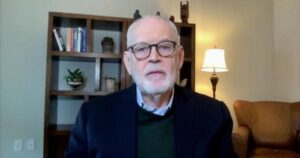By: Keith C. Black Jr.
Friday, December 13, 2024 at 12:58 PM EST
In a world where the complexities of the health care system intertwine with the very fabric of our society, the tragic event that led to the death of a UnitedHealth Group executive has cast a long shadow over the industry. The response from CEO Andrew Witty, who articulated that the US health system “does not work as well as it should,” resonates deeply, not just as a corporate statement but as a poignant reflection on the challenges we face in health care today.
The UnitedHealth Group, one of the largest health insurers in the United States, occupies a pivotal role in the American health landscape. Its influence extends beyond mere profit margins; it impacts millions of lives, shaping the experiences of patients, providers, and communities. The recent tragedy that claimed the life of a top executive has not only shaken the company but has also triggered a wave of consumer outcry, highlighting the vulnerabilities within an already strained system.
When Witty acknowledged the system’s shortcomings, he was not merely addressing an incident; he was confronting a systemic issue that has long plagued American health care. The frustration of consumers, fueled by rising costs, inconsistent quality of care, and accessibility challenges, has reached a boiling point. In this moment of crisis, Witty’s admission serves as a crucial reminder that leadership in health care requires more than technical expertise; it demands empathy, transparency, and a commitment to meaningful change.
Trust is the cornerstone of any relationship, and in health care, it is paramount. Patients trust their providers to deliver quality care, insurers to protect their interests, and leaders to advocate for systemic improvements. However, the erosion of trust has become a defining characteristic of the American health system. Reports of exorbitant medical bills, surprise charges, and the struggle to navigate insurance coverage have left many feeling vulnerable and betrayed.
Witty’s remarks highlight a critical juncture in the industry. By acknowledging the system’s failures, he opens the door for dialogue about accountability and reform. However, words alone are insufficient. Trust must be rebuilt through action. This necessitates a concerted effort from all stakeholders—insurers, providers, policymakers, and patients—to work collaboratively towards solutions that prioritize patient welfare over profit margins.
In the wake of Witty’s statement, the question arises: what does accountability look like in the health care sector? For too long, the focus has been on financial performance, often at the expense of patient outcomes. The tragic loss of a leader serves as a stark reminder that the stakes are high, and the consequences of inaction can be devastating.
Accountability in health care requires a shift in mindset. It involves embracing transparency, where organizations are willing to share data on outcomes, costs, and patient experiences. It also means fostering a culture of safety, where errors are acknowledged and learned from rather than hidden. Witty’s leadership will
